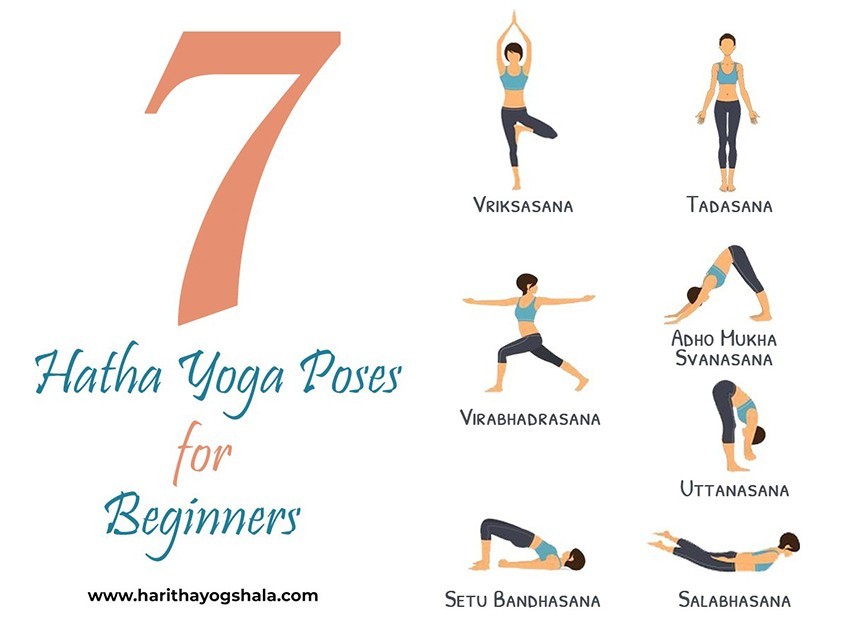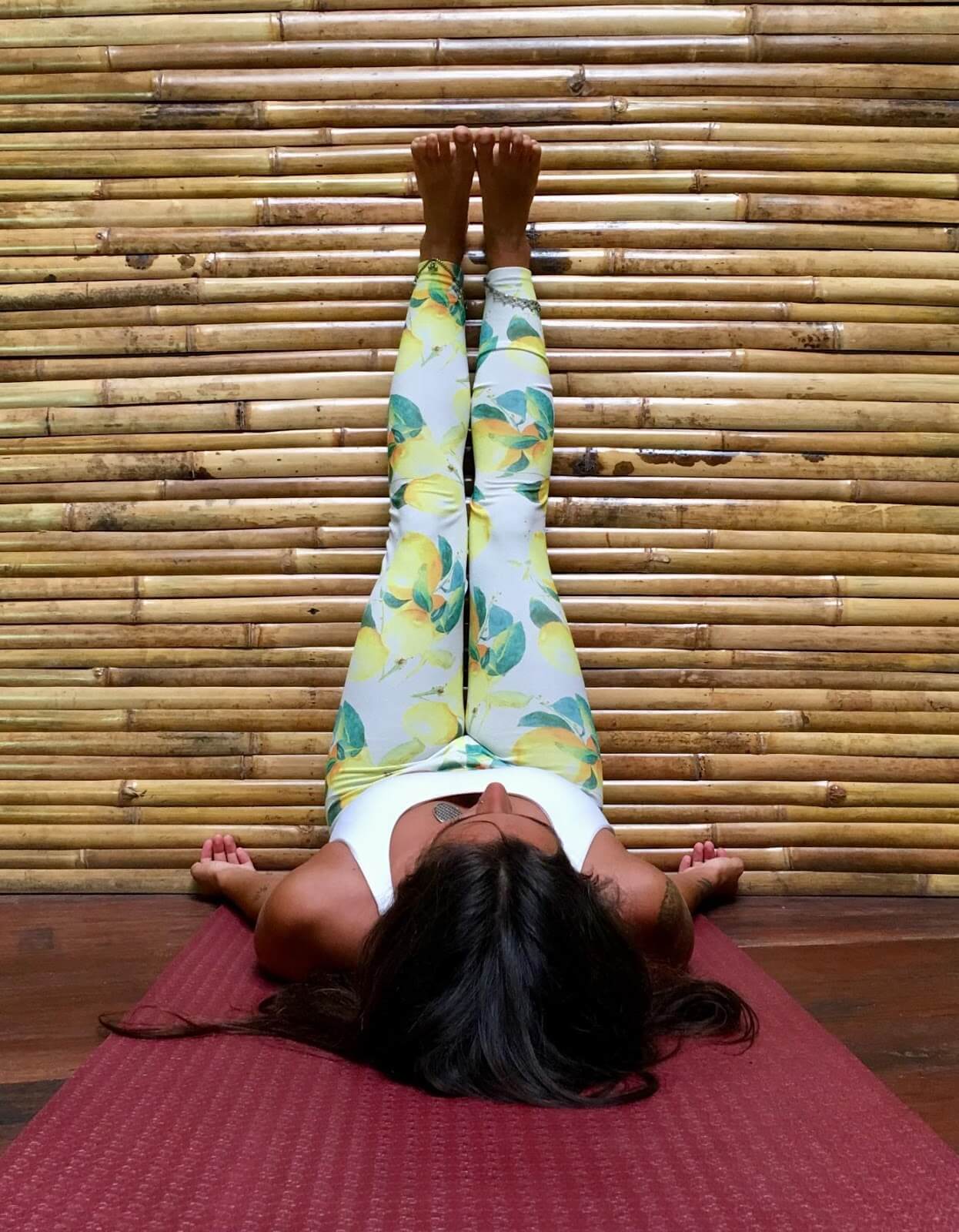
The New York Times published a 2012 article that suggested yoga can harm your back and possibly even kill you. This article was based solely on cherry-picked examples, and many were exaggerated. These stories are not representative of yoga in general. Fortunately, scientists have found that yoga is generally safe. For beginners, here are some tips.
Yoga can be a form exercise that offers many health benefits. You should immediately stop practicing yoga if you have any type of injury. Not only can continuing the practice lead to additional complications, such as hemorrhoids, but it can also cause pain. You should seek medical attention in these situations and talk to a yoga instructor. You should seek out a certified instructor who is trained in dealing with hip problems.

Badly performing yoga poses can lead you to serious injury. It is important to check with your doctor first if you are in the midst of a knee injury. Even though the poses can be modified to reduce risk, it is best to consult your doctor before starting any yoga program. It is important that you note that yoga may not be suitable for those with heart and lung problems. Heartburn is a common problem associated with excessive yoga.
Yoga poses can cause serious injuries, so people with medical conditions should not practice it. Some poses, such as Paschimottanasanasana and Padmasanasanasana can pose a risk. You should not attempt yoga for disc pain or knee pain. You may end up hurting yourself, or worse, injuring yourself. It is important to practice safely and consistently to avoid this.
The benefits of yoga practice are many, but some aren't worth it for everyone. While certain poses can damage your knees, others are not usually dangerous. You should adjust your ability to perform the poses to fit your current level of fitness and health. Do not place too much stress upon your knees if arthritis is a concern. Besides, you shouldn't do them if you're pregnant or have high blood pressure.

Yoga is a wonderful way to relieve stress, improve your health and be more positive. However it can be dangerous for certain people. Yoga can not only reduce stress but also lead to serious injuries. You may need to stand on your head and stretch your legs for intensive yoga. These may cause injury. Although most yoga is safe and can improve your quality life, not all yoga poses are safe. While it is good for your physical health, it can be dangerous for some people.
FAQ
Does Weightlifting Burn Fat Faster?
Weight lifting is a great way to burn fat faster but you need to do it together with cardio exercise.
It is important to do weightlifting right after cardio exercise in order to reap the full benefits.
When done correctly, weightlifting increases your heart rate and oxygen consumption which helps you lose weight.
If you don't mix it with cardio, your body won't notice significant changes.
Is it true?
Protein helps to maintain healthy bones, tissue, and skin. Over-consuming protein can result in calcium being excreted through the kidneys. This can cause kidney stones.
It's important to note that not everyone gets kidney stones after eating more than 2 grams of protein per kilogram (2.2 pounds) of body weight. High amounts of protein can be consumed by some people without causing kidney stones.
By watching how much sodium you consume, kidney stones can be prevented. Sodium regulates the body's water balance. High levels of sodium are linked to a greater risk of developing renal stones.
If you have kidney stones, you can reduce your intake of protein. About half of adults' daily caloric intake is made up of protein. Reduce your intake of protein and you will likely lose weight.
If you do decide to eat more protein, don't go overboard. Aim for less than 20% of total calories from protein.
What is your favorite workout to build muscle mass?
There are two main things you must do when building muscle mass. These are compound movements and isolation exercises. While compound movements focus on a single muscle, isolation exercises are focused on specific muscles.
You can improve your workouts by choosing exercises that challenge all major muscle groups. This will ensure that you work hard every session.
To keep track of what you have done, use an app called MyFitnessPal. It lets you log everything from calories burned and weight lifting. You can even create customized meal plans that are based on your goals.
Statistics
- The PRS enabled risk stratification for overall prostate cancer and lethal disease with a four-fold difference between men in the highest and lowest quartiles (HR, 4.32; 95% confidence interval [CI], 3.16-5.89). (pubmed.ncbi.nlm.nih.gov)
- According to the American Heart Association, blood pressure should be checked at least once every two years, beginning at age 20. (my.clevelandclinic.org)
- Cardmembers earn 5% Back at Amazon.com with a Prime Credit Card. (amazon.com)
- Get free shipping and 25% off today. (healthline.com)
- Candidates and applicants must pass all four tests at 70% (minimum level) to graduate from Basic Deputy U.S. Marshal (BDUSM) Training. (usmarshals.gov)
External Links
How To
How can I burn fat and exercise?
Exercise burns calories through increased metabolism and oxygen consumption.
If you exercise with moderate intensity, you can safely lose weight.
These tips can help you to burn fat while training:
-
Cardio exercises can include running, walking, swimming or cycling.
-
You can exercise for 30 mins three times per week.
-
Add strength training to your workouts if you are looking to lose more weight.
-
Avoid intense workouts. You can build muscle without having to lose muscle tissue.
-
Hydrate well during exercise. Water is essential for flushing out toxins and keeping your body hydrated.
-
After working out, make sure to drink low-fat proteins shakes. Protein shakes are great for your muscles and energy.
-
Smaller meals are better for you.
-
Don't skip breakfast! Skipping breakfast can lead to fatigue and sluggishness.
-
Take care of your mind. Stressful situations can slow your metabolism.
-
Keep a positive attitude. Research shows that overweight people gain more weight if they believe they are overweight than those who believe they look good.
-
Get enough sleep. Insufficient sleep can make it more difficult to lose weight.
-
Stay active. Get up every hour and get moving.
-
Maintain a healthy diet. You will feel fuller longer if you eat right.
-
Find ways to relax. Tenseness can cause stress hormones to break down muscle tissue.
A balanced diet will provide all nutrients that are necessary for growth.
Six small meals per day is better than three large meals. This gives your body the time it needs to process what you've eat.
You need about 500 milligrams of calcium daily to maintain strong bones. Calcium can be found as a dairy product such as milk, yogurt and fortified soy drinks, orange juices, cereals, breads, and cereals.
Calcium is found in green leafy vegetables, beans, tofu, seeds, nuts, and cheese.
Vitamin D is essential for calcium absorption. Vitamin D can also be found in some fortified foods such as eggs, fish, and yolk.
Vitamin E is important for skin health. It can be found as a vegetable oil, wheat germ, peanuts or almonds.
Your body needs zinc for normal immunity function and wound healing. Zinc can be found as a mineral in oysters.
Zinc deficiency can cause fatigue and loss of appetite. It can also lead to depression and impaired immunity.
Eating too much sugar causes insulin resistance, which increases blood glucose levels. Insulin resistance can lead to weight gain.
High levels of free radicals can lead to insulin resistance. Free radicals are molecules with unpaired electrons that damage cell membranes and other parts of the body.
Most free radicals come from pesticides herbicides, food additives, preservatives smoking, radiation, chemical in cosmetics, lotions and household cleaning supplies.
Free radicals can lead to cancer and heart disease, diabetes mellitus, arthritis, asthma, and premature aging.
Eating a well-balanced diet with antioxidants is the best way to prevent free radical damage. Antioxidants protect against oxidative damage.
Vitamin C, beta carotene (found within citrus fruits, carrots, sweet potatoes and spinach), Vitamin E (found inside nuts, olive oils, avocados and eggs), and Vitamin C (found among mangoes.
Selenium, copper as well as manganese and zinc are some other antioxidant nutrients.
Selenium helps to protect cells against free radicals and oxidative stress. Selenium is also found in Brazil nuts.
Copper protects your eyes, brain, eyes and red blood cell. Copper is also found in poultry, meat, and organs.
Manganese plays an important role in bone structure. Manganese can also be found in oatmeal, brown rice, spinach and bananas.
Zinc is required for normal growth, reproduction and wound healing. Zn is found in lean cuts of meat, white fish, poultry, and eggs.